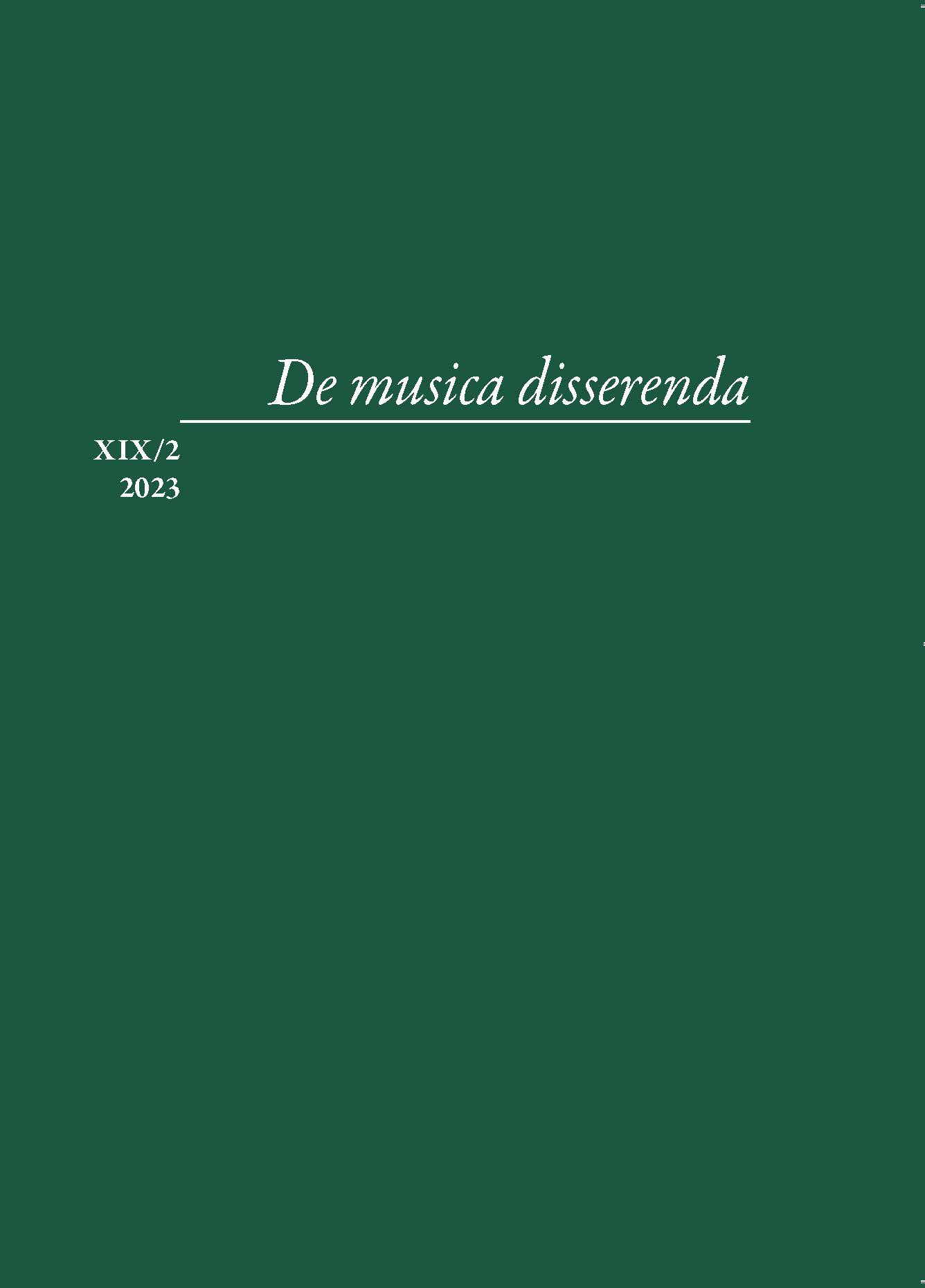Investigating the Shipton Hoard
DOI:
https://doi.org/10.3986/dmd19.2.02Keywords:
The Purcell Society, Edward Taylor, Edward Francis Rimbault, antiquarianism, book collectorsAbstract
In August 1840 a letter published in The Musical World announced the discovery of “four large iron chests filled with music-books”, some of great rarity, which have never been recovered. The truth is that the announcement is a hoax. But who perpetrated it? This essay sifts the evidence and attempts to solve the mystery.
Downloads
References
Ames, Joseph. Typographical Antiquities; or The History of Printing in England, Scotland, and Ireland. London: Miller, 1810.
Andrewes, Richard. “Edward Francis Rimbault, 1816–1876”. Fontes artis musicae 30, nos. 1–2 (1983): 30–34.
Blades, William, ed. A Catalogue of Books Printed by, or Ascribed to the Press of William Caxton. London: author, 1865.
Bowyer, William, and John Nichols. The Origin of Printing: In Two Essays. London: authors, 1774.
Butler, Katherine. “From Liturgy and the Education of Choirboys to Protestant Domestic Music-Making: The History of the ‘Hamond’ Partbooks (GB-Lbl: Add. MSS 30480-4)”. Royal Musical Association Research Chronicle 50, no. 1 (2019): 29–93. https://doi.org/10.1080/14723808.2018.1546477.
Catalogue of the Extensive Library of Doctor Rainbeau, F.R.S., F.S.A., A.S.S. [sic] &c., Which Messrs Topsy, Turvy, & Co. Will Put Up for Public Competion [sic] on Saturday, October, 1862. [London], [1862].
Catalogue of the Famous Musical Library of Books, Manuscripts, Autograph Letters, Musical Scores, etc. The Property of the Late W. H. Cummings, Mus. Doc. London: Sotheby, Wilkinson & Hodge, 1917.
Catalogue of the Valuable Library of the Late Edward Francis Rimbault, LL.D. Comprising An Extensive and Rare Collection of Ancient Music, Printed and Manuscript. London: Sotheby, Wilkinson & Hodge, 1877.
Connell, Philip. “Bibliomania: Book Collecting, Cultural Politics, and the Rise of Literary Heritage in Romantic Britain”. Representations 71 (2000): 24–47. https://doi.org/10.2307/2902924.
Cummings, William H. Purcell. London: Sampson Low, Marston, Searle, & Rivington, 1881.
Cummings, William H. “Purcell Club, The”. In Grove’s Dictionary of Music and Musicians, edited by John Alexander Fuller Maitland, 3:857–858. London: Macmillan, 1907.
Dart, Thurston. “Henry Loosemore’s Organ-Book”. Transactions of the Cambridge Bibliographical Society 3, no. 2 (1960): 143–151.
Grafton, Anthony. Forgers and Critics: Creativity and Duplicity in Western Scholarship. Princeton: Princeton University Press, 1990. https://doi.org/10.2307/j.ctvc77ffp.
Haines, John. “The Footnote Quarrels of the Modal Theory: A Remarkable Episode in the Reception of Medieval Music”. Early Music History 20 (2001): 87–120. https://doi.org/10.1017/S0261127901001024.
Hiscock, Walter George. A Christ Church Miscellany. Oxford: Oxford University Press, 1946.
Holman, Peter. “Early Music in Victorian England: The Case of the 1845 Concert”. Ad Parnassum 4, no. 8 (2006): 81–114.
King, Alec Hyatt. Some British Collectors of Music: C. 1600–1960. Cambridge: Cambridge University Press, 1963.
Latham, Robert C., and William Matthews, eds. The Diary of Samuel Pepys. Vol. 1. London: Bell and Hyman, 1970.
Milsom, John. “Songs and Society in Early Tudor London”. Early Music History 16 (1997): 235–293. https://doi.org/10.1017/S026112790000173X.
Nixon, H. M. “The Book of XX Songs”. British Museum Quarterly 16, no. 2 (1951): 33–35.
Parthenia In-Violata, or Mayden-Musicke for the Virginalls and Bass-Viol. Edited by Robert Hole. Facsimile. New York: New York Public Library, 1961.
Rimbault, Edward Francis. The Rounds, Catches, and Canons of England: A Collection of Specimens of the Sixteenth, Seventeenth and Eighteenth Centuries, Adapted to Modern Use. London: Cramer, Wood, 1864.
Ritson, Joseph. Ancient Songs and Ballads. 2 vols. London: Payne and Foss, 1829.
Ritson, Joseph, ed. Ancient Songs: From the Time of King Henry the Third to the Revolution. London: John Johnson, 1790.
“Sale of Dr. Rimbault’s Library”. The Musical Times and Singing Class Circular 18, no. 415 (1877): 427–428.
Selections from the Works of Thomas Ravenscroft: A Musical Composer of the Time of King James the First. [London]: Roxburghe Club, 1822.
Sommer, Susan T. “Joseph W. Drexel and His Musical Library”. In Music and Civilization: Essays in Honor of Paul Henry Lang, edited by Edmond Strainchamps and Maria Rika Maniates, 270–278. New York: Norton, 1984.
Watson, Thomas, ed. The First Sett, of Italian Madrigals Englished, Not to the Originall Dittie, but after the Affection of the Noate. London: Thomas East, 1590.
Young, Percy. “The Notorious Dr Rimbault (1816–1876)”. BIOS Journal 22 (1998): 126–138.
Downloads
Published
Versions
- 2024-06-05 (2)
- 2024-01-25 (1)
How to Cite
Issue
Section
License

This work is licensed under a Creative Commons Attribution-NonCommercial-NoDerivatives 4.0 International License.
Authors guarantee that the work is their own original creation and does not infringe any statutory or common-law copyright or any proprietary right of any third party. In case of claims by third parties, authors commit their self to defend the interests of the publisher, and shall cover any potential costs.
More in: Submission chapter






